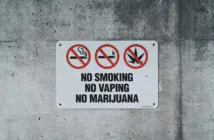Critical risks in workplaces must not only be identified but also managed effectively, WorkSafe reiterates after a recent court judgement

Mining company Oceana Gold was sentenced in Tauranga District Court after the death of a worker in July 2016.
The worker had been driving an earthmoving machine underground when it fell 15 metres off a vertical edge.
Our investigation found that Oceana Gold had failed to develop and implement a safe system of work for the creation of 1.5 metre high bunds above vertical slopes.
Oceana Gold had identified the risk and the solution of bunds to reduce the risk of a vehicle falling into a void.
However, they had not effectively mitigated the risks involved in implementing that solution.
“Health and safety law requires every business to manage risks to workers. It’s a non-negotiable requirement and this case has highlighted that the requirement extends to the risks inherent in the actions taken to mitigate known risks,” WorkSafe’s Acting General Manager High Hazards and Energy Safety Craig Marriott says.
Following the incident, Oceana Gold developed an innovative, non-industry-standard procedure for placing steel bollards along open slopes, to stop an incident like this from happening again.
A final fine of $378,000 was imposed and reparations of $350,000 were ordered, voluntary reparations totalling $660,000 having already been paid. Costs of $3672 were ordered.
Oceana Gold (New Zealand) Limited was charged under sections 36(1)(a), 48(1) and (2)(c) of the Health and Safety at Work Act 2015:
- Being a PCBU failed to ensure, so far as was reasonably practicable, the health and safety of workers who work for the PCBU, while at work in the business or undertaking, namely working at the Waihi underground mine and that failure exposed workers, to a risk of death or serious injury arising from a fall from height.
- The maximum penalty is a fine not exceeding $1.5 million.



